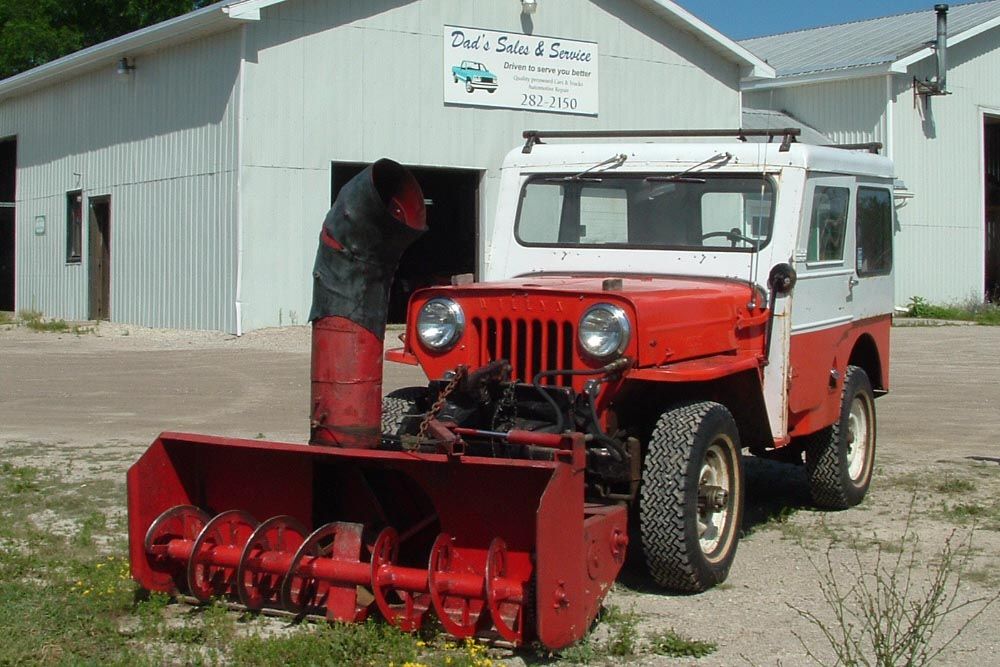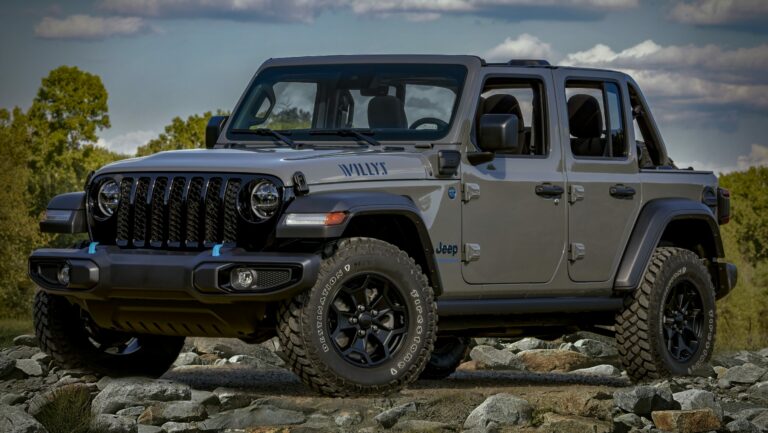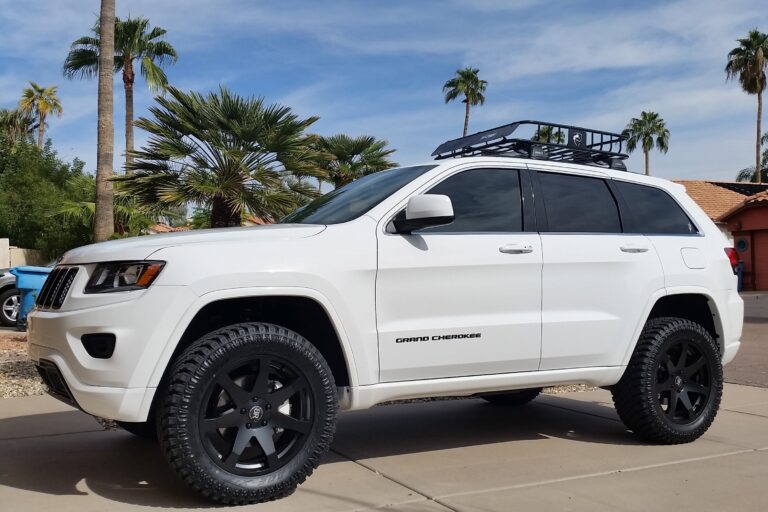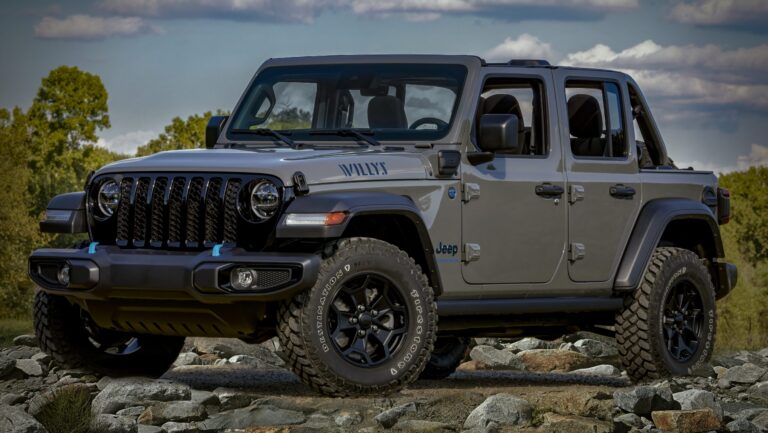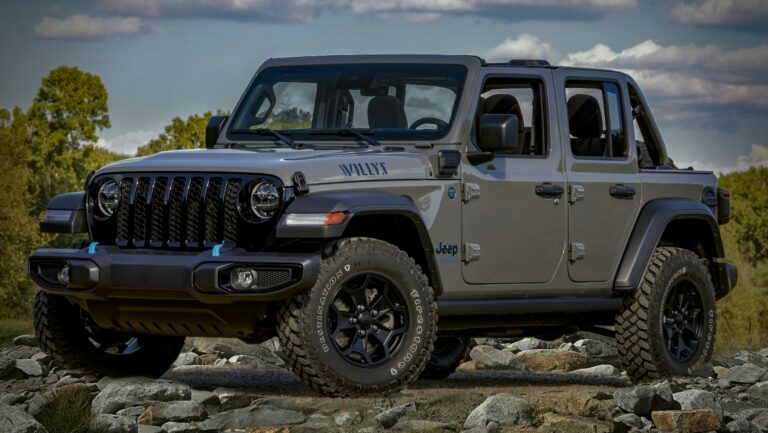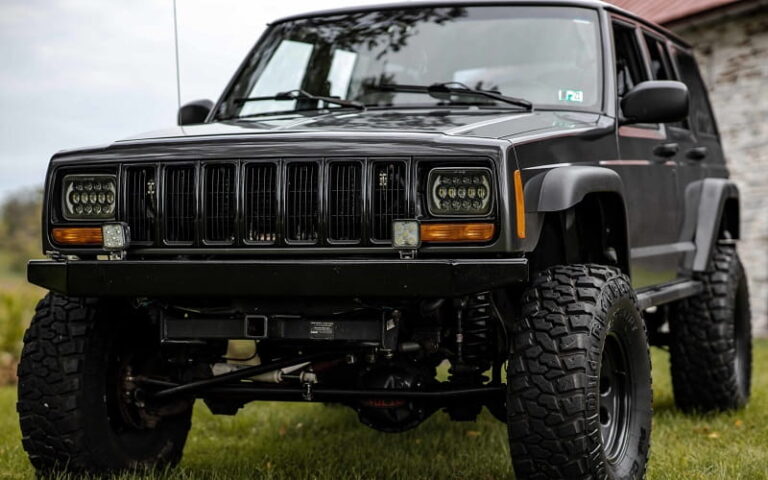Willys Jeep Farm Attachments For Sale: Unleashing the Unsung Workhorse of the Farm
Willys Jeep Farm Attachments For Sale: Unleashing the Unsung Workhorse of the Farm jeeps.truckstrend.com
The image of a rugged Willys Jeep, with its distinctive grille and utilitarian charm, often conjures thoughts of military campaigns or adventurous off-road excursions. Yet, for a significant period in American history, particularly in the post-World War II era, the Willys Jeep transformed from a symbol of wartime tenacity into an indispensable workhorse on countless small farms and homesteads. This remarkable metamorphosis was made possible by a clever engineering solution: the Power Take-Off (PTO) system, which allowed the Jeep to power a surprising array of farm implements. Today, the market for "Willys Jeep Farm Attachments For Sale" continues to thrive, appealing to enthusiasts, small-scale farmers, and those seeking a unique blend of historical charm and practical utility. This comprehensive guide will delve into the world of these specialized attachments, exploring their significance, types, benefits, and the essential considerations for anyone looking to acquire them.
The Enduring Legacy: Why Willys Jeeps Became Farm Workhorses
Willys Jeep Farm Attachments For Sale: Unleashing the Unsung Workhorse of the Farm
Following the end of World War II, thousands of surplus Willys MB and Ford GPW Jeeps became available to the civilian market. At the same time, Willys-Overland introduced the CJ-2A, the first civilian Jeep, specifically marketing it as a "Universal Farm Implement." This was a brilliant move, capitalizing on the need for affordable, versatile machinery in a rapidly modernizing agricultural landscape.
The key to the Jeep’s agricultural prowess was its robust powertrain and, crucially, the optional Power Take-Off (PTO) unit. This system allowed the Jeep’s engine to transfer its power directly to external machinery, effectively turning the compact vehicle into a tractor substitute. Its small footprint, maneuverability, and four-wheel-drive capability made it ideal for smaller plots, hilly terrain, and tasks where a full-sized tractor might be overkill or too expensive. For many farmers, a Willys Jeep with its PTO and a few key attachments offered an economical and highly adaptable solution for a wide range of chores, solidifying its place as an unsung hero of American agriculture.
Understanding the Power Take-Off (PTO) System
The Power Take-Off (PTO) is the heart of the Willys Jeep’s farm utility. On most Willys Jeeps equipped for farm work, the PTO unit is mounted at the rear of the vehicle, though front-mounted PTOs for specific applications also existed. This system connects directly to the Jeep’s transmission or transfer case, allowing the engine’s rotational power to be channeled via a shaft to an external implement.
When searching for "Willys Jeep Farm Attachments For Sale," it’s crucial to understand the PTO. The standard rear PTO typically operates at a specific RPM (revolutions per minute), usually 540 RPM, which became a common standard for many farm implements. This rotation is then transferred through a splined shaft to the attachment. Most Willys Jeeps utilized a "non-live" PTO, meaning that the PTO shaft stops rotating when the clutch is disengaged or the transmission is shifted out of PTO gear. While this is less convenient than the "live" PTOs found on modern tractors (which allow the PTO to run independently of the vehicle’s movement), it was perfectly functional for the tasks at hand and significantly expanded the Jeep’s capabilities. Verifying that the PTO unit on a Jeep is functional and in good condition is paramount before investing in any attachments.
Common Types of Willys Jeep Farm Attachments For Sale
The versatility of the Willys Jeep with its PTO system led to the development and adaptation of a surprising variety of implements. When looking for "Willys Jeep Farm Attachments For Sale," you’ll encounter a range of options, each designed for specific agricultural tasks:
- Plows: Single-bottom moldboard plows were common, designed for turning over soil in preparation for planting. While a Willys might struggle with a two-bottom plow in heavy soil, a well-tuned Jeep could handle a single furrow with ease.
- Discs/Harrows: Light disc harrows or spring-tooth harrows were used for breaking up clods, leveling the seedbed, and incorporating crop residue after plowing. These often attach to a rear drawbar.
- Cultivators: Various types of cultivators, including those with rigid shanks or spring tines, were used for weed control between crop rows.
- Tillers/Rotary Tillers: These PTO-driven implements use rotating blades to break up and aerate soil, creating a fine seedbed. They were particularly effective for garden plots and smaller fields.
- Mowers (Sickle Bar Mowers): One of the most popular attachments, sickle bar mowers (often side-mounted or rear-mounted) were excellent for cutting hay, clearing brush, or maintaining pastures. They are typically PTO-driven for blade operation.
- Sprayers: PTO-driven pumps could power boom sprayers for applying pesticides, herbicides, or fertilizers. These usually involved a tank mounted on the Jeep or a small trailer pulled behind.
- Post-Hole Diggers/Augers: These rugged, PTO-driven augers made quick work of digging holes for fence posts, often mounted on the rear of the Jeep.
- Winches: While not strictly farm implements, front or rear-mounted PTO winches were incredibly useful for pulling logs, stuck vehicles, or other heavy objects around the farm.
- Snow Plows: A common non-PTO attachment, front-mounted snow plows greatly extended the Jeep’s utility into the winter months for clearing driveways and farm roads.
- Blade/Scraper: Rear-mounted blades were used for leveling dirt, grading driveways, or pushing loose materials.
- Pumps: PTO-driven pumps could be used for irrigation, dewatering flooded areas, or transferring liquids.


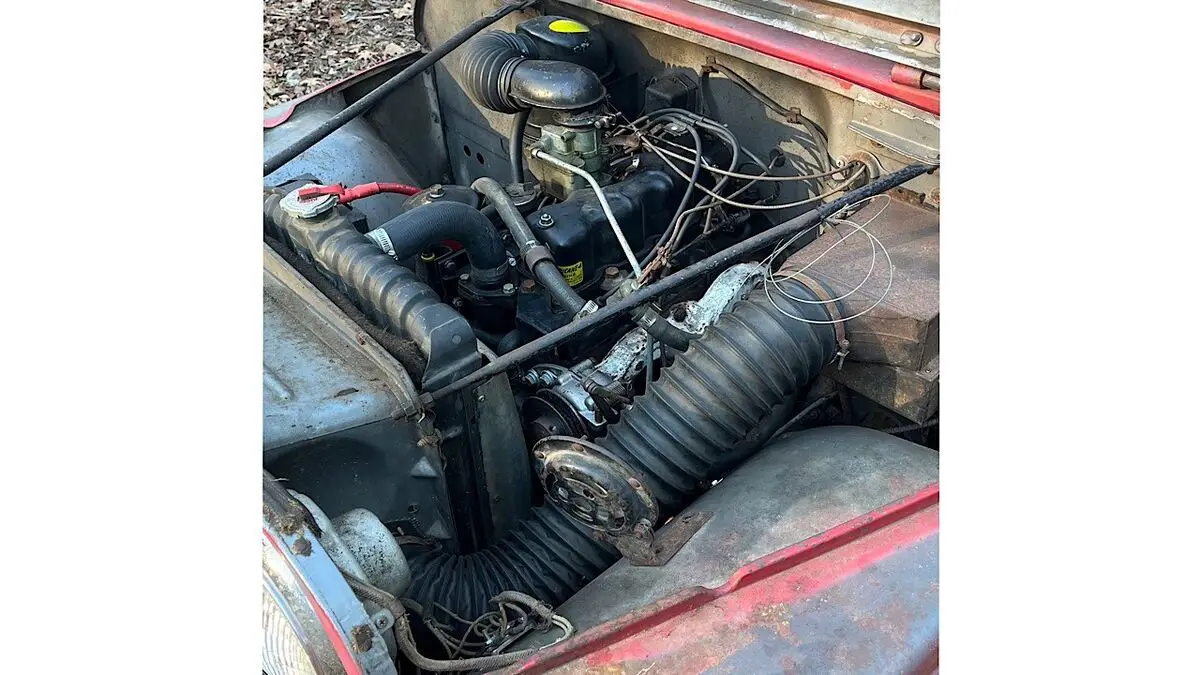
Each of these attachments transformed the Willys Jeep into a multi-purpose machine, proving its worth far beyond its original military design.
Benefits of Using Willys Jeep Farm Attachments
The enduring appeal of "Willys Jeep Farm Attachments For Sale" stems from several key advantages they offer:
- Cost-Effectiveness: Compared to dedicated modern tractors, acquiring a Willys Jeep and its attachments can be significantly more affordable, making it an excellent option for hobby farms, large gardens, or those on a budget.
- Versatility: A single Willys Jeep, properly equipped, can perform tasks that would otherwise require multiple specialized machines, from plowing and tilling to mowing and hauling.
- Compact Size & Maneuverability: The Jeep’s relatively small size and tight turning radius make it ideal for navigating smaller fields, orchards, and tight spaces where larger tractors might struggle.
- Durability & Simplicity: Willys Jeeps and their period attachments were built with robust, straightforward mechanical designs, making them relatively easy to maintain and repair, even for those with basic mechanical skills.
- Historical Charm & Hobby Appeal: For many, owning and operating a vintage Willys Jeep with its farm attachments is a passion project, offering a connection to agricultural history and a rewarding hands-on experience.
- Accessibility of Jeep Parts: While finding specific attachment parts can be challenging, parts for the Willys Jeep itself (engines, transmissions, axles) are still relatively available due to their widespread use.
Important Considerations When Buying Willys Jeep Farm Attachments For Sale
Purchasing vintage farm attachments requires careful consideration to ensure you’re making a worthwhile investment.
- Jeep Compatibility: First and foremost, ensure the attachment is compatible with your specific Willys Jeep model and its PTO system (if applicable). Not all Jeeps had PTOs, and even those that did might have slightly different configurations.
- Attachment Condition: Thoroughly inspect the attachment for rust, bends, cracks, or missing components. Check bearings, gears (if applicable), and cutting edges. Look for signs of heavy wear or neglect.
- PTO Requirement & Functionality: If the attachment is PTO-driven, confirm your Jeep has a functional PTO. If buying a PTO-driven attachment, check the condition of its drive shaft and universal joints.
- Power Match: Ensure your Willys Jeep’s horsepower is sufficient for the intended attachment and the type of work you plan to do. Overloading the Jeep can lead to premature wear and damage.
- Safety Features: Vintage attachments lack modern safety guards and interlocks. Assess the risks and consider what modifications or precautions you’ll need to implement for safe operation.
- Transportation: Plan how you will transport the attachment. Some can be quite heavy and cumbersome.
- Documentation: While rare, original manuals or parts diagrams can be invaluable for understanding operation and maintenance.
Where to Find Willys Jeep Farm Attachments For Sale
The hunt for these vintage implements can be part of the adventure. Here are common places to look:
- Online Marketplaces: Websites like eBay, Facebook Marketplace, and Craigslist are excellent starting points. Use specific search terms like "Willys Jeep plow," "Jeep PTO tiller," or "Willys sickle mower."
- Specialty Forums & Clubs: Online forums dedicated to Willys Jeeps, vintage tractors, or antique farm equipment often have "for sale" sections or members who can provide leads. Joining a local antique tractor club can also be beneficial.
- Farm Estate Sales & Auctions: Keep an eye out for farm liquidation sales or auctions in rural areas. You might find a treasure trove of old equipment.
- Word-of-Mouth: Let local farmers, mechanics, and antique machinery enthusiasts know what you’re looking for. Many old implements are still sitting in barns.
- Salvage Yards/Junkyards: While less common for complete, usable units, some specialized salvage yards might have parts or even complete attachments that can be restored.
Practical Advice and Actionable Insights
- Inspect Before You Buy: Never buy sight unseen. Always physically inspect the attachment or have a trusted expert do so.
- Test if Possible: If the seller allows, try to see the attachment operate, even if it’s just spinning the PTO shaft by hand or hooking it up to a running Jeep (if feasible and safe).
- Research Thoroughly: Understand the specific model of the attachment, its limitations, and any common issues before purchasing.
- Factor in Restoration Costs: Unless you’re buying a fully restored piece, assume you’ll need to invest time and money in cleaning, lubrication, repairs, and possibly paint.
- Safety First: Operating vintage equipment requires heightened awareness. Always wear appropriate personal protective equipment (PPE), ensure all moving parts are guarded where possible, and never take shortcuts.
- Join the Community: Connect with other Willys Jeep and vintage farm equipment enthusiasts. Their collective knowledge can be invaluable for sourcing parts, troubleshooting, and learning best practices.
Willys Jeep Farm Attachments For Sale: Simulated Price Guide
Please note: The prices for "Willys Jeep Farm Attachments For Sale" vary wildly based on condition, rarity, location, seller motivation, and historical accuracy. This table provides simulated typical price ranges in USD for a unit in fair to good, usable condition, not fully restored.
| Attachment Type | Description | Typical Price Range (USD) | Condition Notes Willys Jeep Farm Attachments For Sale: The Ultimate Guide
The sight of a classic Willys Jeep often evokes images of rugged military service or adventurous off-road expeditions. Yet, for countless rural families and small-scale farmers, particularly in the mid-20th century, the Willys Jeep was far more than just a vehicle; it was a compact, adaptable, and indispensable agricultural workhorse. This transformation was largely thanks to the ingenious Power Take-Off (PTO) system, which allowed the Jeep to power a surprisingly diverse array of farm implements. Today, the demand for "Willys Jeep Farm Attachments For Sale" continues to resonate with a specific niche: collectors, homesteaders, and those seeking a unique blend of historical charm, sustainable practices, and practical utility. This comprehensive article aims to be your definitive guide to understanding, acquiring, and utilizing these fascinating pieces of agricultural history.
The Enduring Legacy: Why Willys Jeeps Became Farm Workhorses
Following the conclusion of World War II, the landscape of American agriculture was poised for significant change. Thousands of surplus Willys MB and Ford GPW Jeeps, renowned for their ruggedness and versatility, became available to the civilian market. Simultaneously, Willys-Overland, recognizing an untapped potential, introduced the CJ-2A – the first civilian Jeep – and aggressively marketed it as a "Universal Farm Implement." This strategic pivot capitalized on the widespread need for affordable, multi-purpose machinery as farmers sought to modernize their operations without the significant investment required for larger, dedicated tractors.
The Jeep’s inherent strengths, including its robust four-wheel-drive system, compact size, and exceptional maneuverability, made it an ideal candidate for smaller farms, orchards, and challenging terrain where conventional tractors might be too large or inefficient. However, it was the integration of the optional Power Take-Off (PTO) unit that truly unlocked the Jeep’s agricultural prowess. This system enabled the vehicle’s engine to transfer its power directly to external implements, effectively transforming the Jeep into a highly adaptable tractor substitute. For many, a Willys Jeep, equipped with its PTO and a select few attachments, represented an economical and highly effective solution for a myriad of farm tasks, cementing its legacy as an unsung hero of American agricultural development.
Understanding the Power Take-Off (PTO) System: The Heart of the Farm Jeep
The Power Take-Off (PTO) system is unequivocally the linchpin of the Willys Jeep’s utility on the farm. On most Willys Jeeps specifically configured for agricultural work, the PTO unit is typically mounted at the rear of the vehicle, though specialized front-mounted PTOs were also available for certain applications like mowers or snow blowers. This ingenious system establishes a direct mechanical link from the Jeep’s transmission or transfer case, channeling the engine’s rotational power through a drive shaft to an external implement.
When you’re searching for "Willys Jeep Farm Attachments For Sale," a fundamental understanding of the PTO is paramount. The standard rear PTO on a Willys Jeep generally operates at a specific revolutions per minute (RPM), most commonly 540 RPM. This 540 RPM standard became widely adopted across the agricultural industry, ensuring compatibility with a broad range of implements. The power is transmitted through a splined shaft that mates with the attachment’s input. It’s important to note that most Willys Jeeps utilized a "non-live" PTO. This means that the PTO shaft ceases to rotate whenever the vehicle’s clutch is disengaged or the transmission is shifted out of the PTO gear. While this might be less convenient than the "live" PTOs found on more modern tractors (which allow the PTO to run independently of the vehicle’s movement), it was perfectly adequate for the tasks for which the Jeep was employed and significantly expanded its operational capabilities. Verifying the functionality and good condition of the PTO unit on any Willys Jeep you consider is an absolute prerequisite before investing in any accompanying farm attachments.
Common Types of Willys Jeep Farm Attachments For Sale
The inherent versatility of the Willys Jeep, coupled with its robust PTO system, spurred the development and adaptation of a surprisingly extensive array of implements. As you explore the market for "Willys Jeep Farm Attachments For Sale," you will encounter a diverse selection, each meticulously designed for specific agricultural operations:
- Plows: Predominantly single-bottom moldboard plows were utilized, designed to efficiently turn over soil in preparation for subsequent planting. While a Willys Jeep might struggle with a two-bottom plow, especially in heavy or compacted soil, a well-maintained Jeep could competently handle a single furrow, making it suitable for smaller fields and gardens.
- Discs/Harrows: Light disc harrows or spring-tooth harrows were essential for breaking up soil clods, leveling the seedbed, and effectively incorporating crop residue into the soil after plowing. These implements typically connected to a rear drawbar.
- Cultivators: Various designs of cultivators, including those with rigid shanks or flexible spring tines, were employed primarily for efficient weed control between rows of growing crops.
- Tillers/Rotary Tillers: These are PTO-driven implements that utilize rapidly rotating blades to aggressively break up and aerate the soil,
.jpg)
